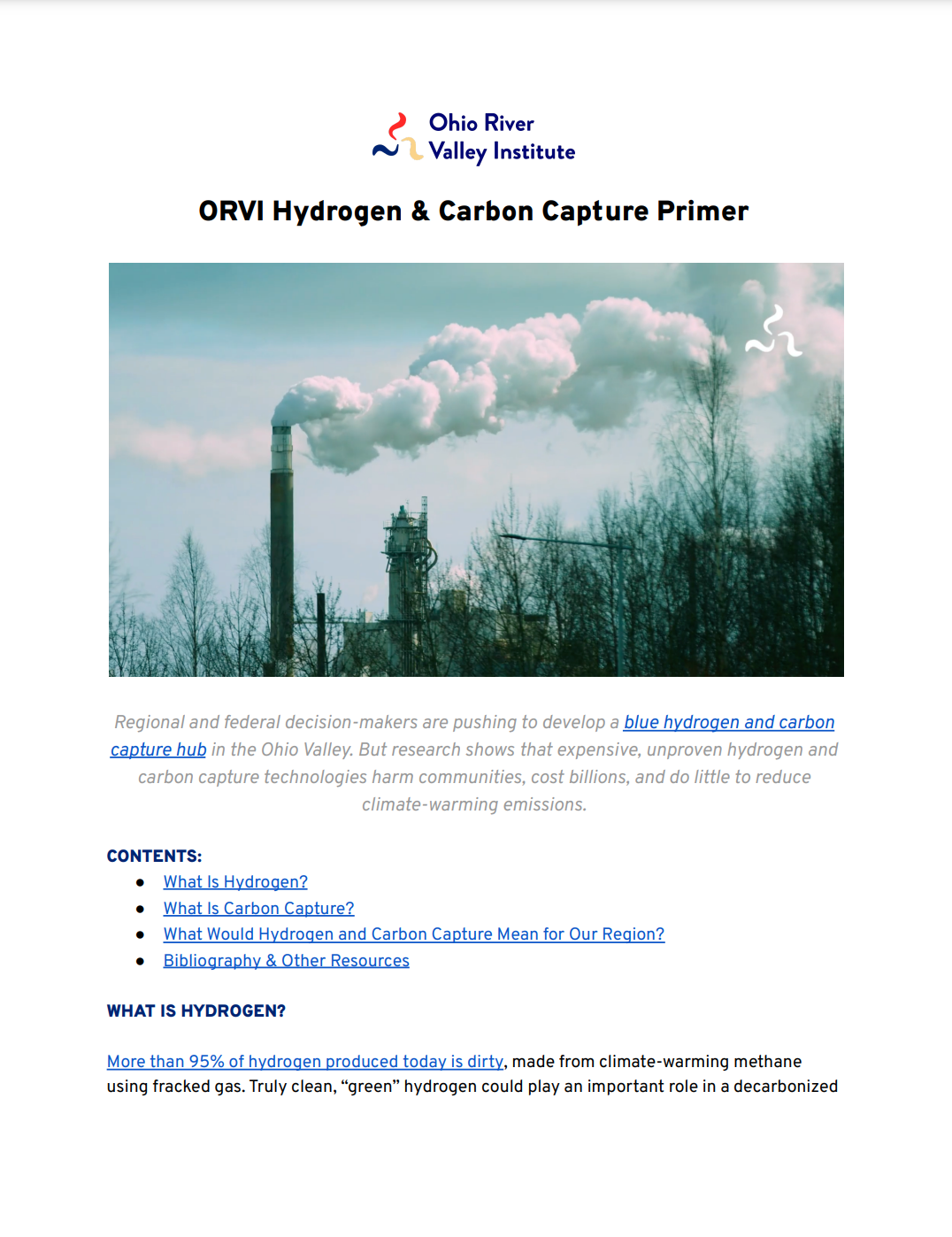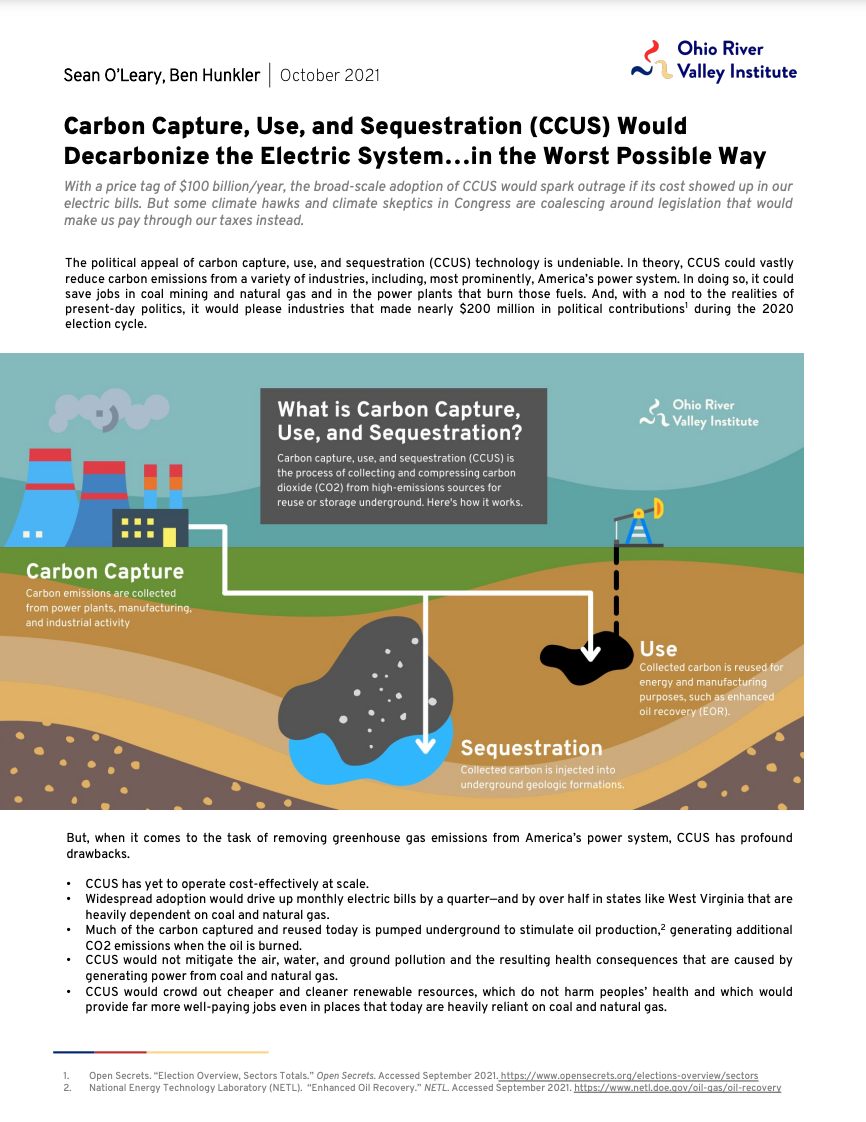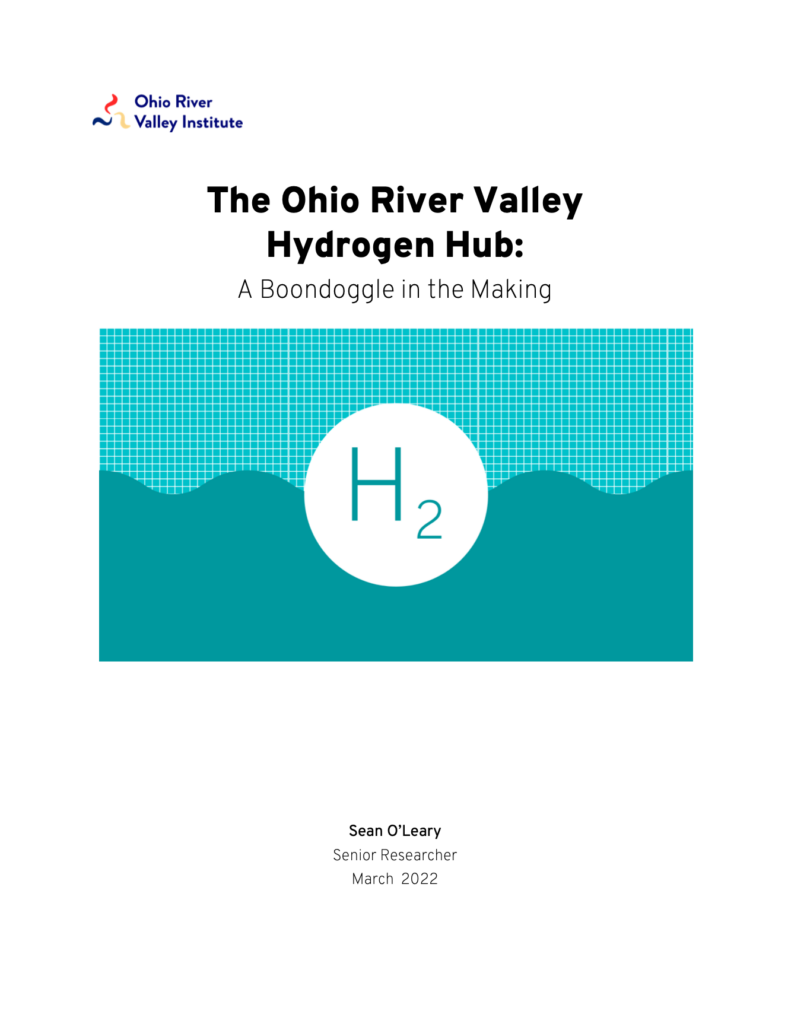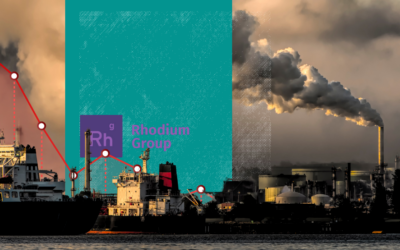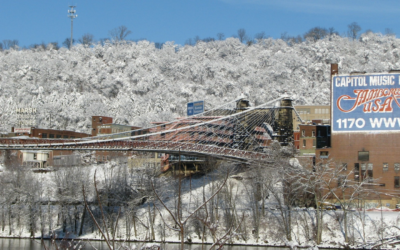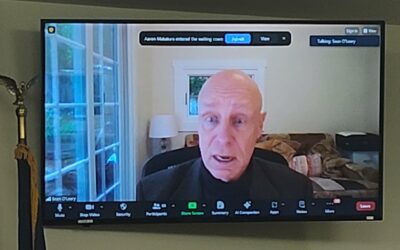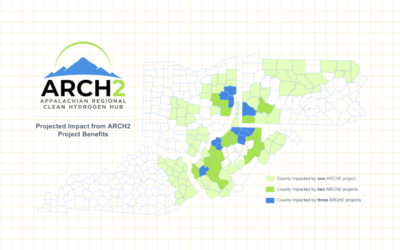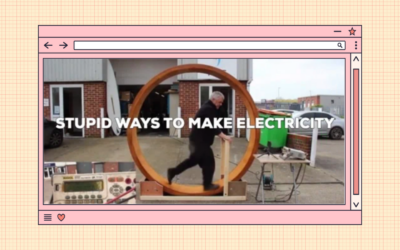Hydrogen & Carbon Capture
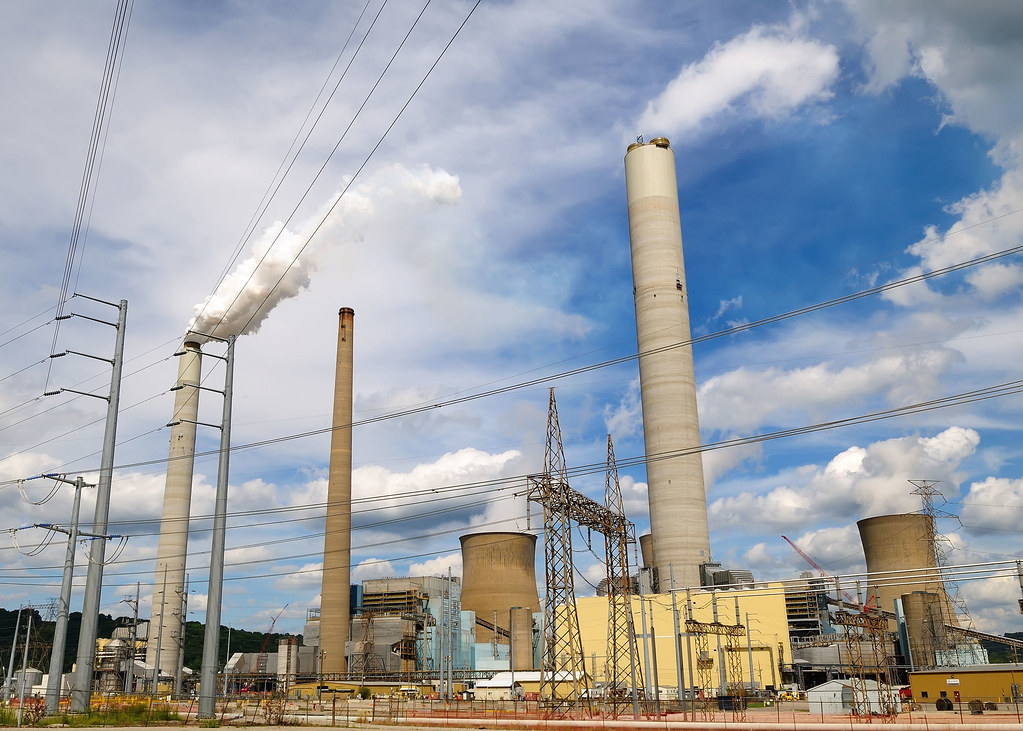
Blue hydrogen and carbon capture are false climate solutions & economic boondoggles.
Expensive, unproven hydrogen and carbon capture technologies harm communities, cost billions, and do little to reduce climate-warming emissions, research shows.
Photo: John E. Amos coal-fired power plant in Winfield, WV. Wikimedia Commons, 2018.
“Oil and gas executives want our region to invest in costly, unproven blue hydrogen and carbon capture technologies to bail out their industries, which increasingly can’t compete with clean, low-cost alternatives.”
Reports:
More resources:
The greatest hydrogen risk facing Pennsylvania policymakers
Lately we hear a great deal about hydrogen’s environmental and economic promise. But hydrogen deployment also carries risks, not just for health and safety, but economic risks, including higher prices, taxes, and utility bills along with little potential for job...
The Tri-State CCS Hub and The Return of The Bad Deal
Do you know a bad deal when you see it? Possibly not, if the deal has to do with something as arcane as leasing underground pore space to an oil and gas company that wants to dispose of carbon dioxide. But that’s the kind of deal property owners and elected officials...
The Rhodium Group’s Economic Impact Report on Carbon Capture and Storage
Attorneys who specialize in contracts know that a single phrase or just a word can completely alter the meaning and effect of a contract. The same is true . . . maybe even more true . . . of economic impact reports, which by their nature are speculative and...
2023 in Review
Together, a more prosperous, sustainable, and equitable Appalachia is possible. That’s the vision that has geared our data-driven research, guided our outreach and campaigns, and grounded our work in the region’s community and culture ever since the Ohio River Valley...
For Decarbonization, Carrots May Be Popular, But They’re Far More Expensive Than Sticks
The Inflation Reduction Act relies far more heavily on carrots than it does on sticks to induce industries to mitigate their carbon emissions. Tax credits for technologies such as carbon capture and sequestration actually exceed the costs companies would incur to...
Pennsylvania Senate Hydrogen Hub Testimony Illuminates Cost, Viability Concerns; Risk of Wasted Taxpayer Dollars
Financial and regulatory support for the gas-based ARCH2 Appalachian Hydrogen Hub risks reduced economic growth, fewer jobs, and higher utility bills, taxes, and prices for Pennsylvanians, according to testimony delivered today at the Pennsylvania Senate Democratic Policy Committee’s hearing on hydrogen infrastructure by Ohio River Valley Institute Senior Researcher Sean O’Leary.
Statement on Federal Funding for the Appalachian Regional Clean Hydrogen Hub
The Ohio River Valley Institute published the following statement in response to the Department of Energy's announcement of up to $925 million in federal funding for the Appalachian Regional Clean Hydrogen Hub (ARCH2). ARCH2 Blue Hydrogen Hub Threatens Higher...
Hint: To do it really stupidly, you need HYDROGEN!
via GIPHY OK, in fairness to everyone who has ever built a hamster wheel to generate electricity, it probably wasn’t about the electricity. It may have been about the merit badge, or your science grade, or just to satisfy your curiosity. But it almost certainly...
Regardless of What They Say, Green Hydrogen Will Be Cleaner, Cheaper, and It’s Around The Corner
“The worry is that, along the way, we are going to waste huge amounts of money on the wrong use cases for hydrogen and the wrong infrastructure in the wrong places. Worse than wasting money, we will also be wasting time – and that is the one thing we don’t...

